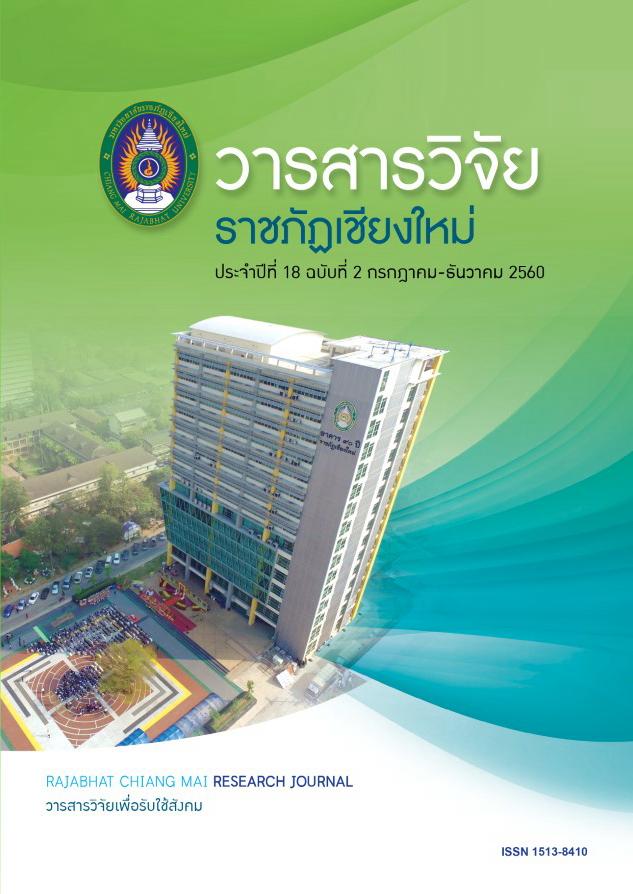The Study on the Perceptions of Students and teachers Towards the World Class Standards Criteria in the Catholic Schools
DOI:
https://doi.org/10.14456/rcmrj.2017.209665Keywords:
Perception, World Class Standards, Catholic EducationAbstract
This study concentrates on the perceptions of students and teachers in the studying and working in various Catholic schools. The purposes of this study are
- To study the perceptions of teachers towards the world class standard criteria in various Catholic schools
- To study the perceptions of students towards the world class standard criteria in various Catholic schools
- To compare the results of the above two perceptions
The study was carried out with 590 teachers and 746 students. The study indicated that the overall perceptions of teachers and students towards the world class standard criteria is at the mean of 2.82 while the value of standard deviation is at 0.50. When considered in each aspect, the perceptions of teachers and students towards the awareness of globalization seem to rank the highest mean with the value of 3.04 while the standard deviation is at 0.63. The next two highest aspects are cultural engagement and global awareness obtaining the means of 2.92 and 2.91 with the values of standard deviations of 0.60 and 0.80 respectively. The results of this study will inform the administrators of the catholic school on what standards they should improve in line with the world class standards.
Downloads
References
ชวนพิศ ทองทวี. (2536). “เอกสารประกอบการเรียนวิชาศึกษา 122”. จิตวิทยาการศึกษา.มหาสารคาม: วิทยาลัยครูมหาสารคาม.
ปรีชา เมธาวัสรภาคย์. (2556). ภาพลักษณ์ด้านคุณค่าของโรงเรียนอัสสัมชัญระยอง. สถาบันวิจัย มหาวิทยาลัยอัสสัมชัญ.
โสฬวรรณ อินทสิทธิ์. (2539). พัฒนาการด้านการรับรู้มิติต่างๆของเด็กอายุ 4-8 ปีจากสิ่งเร้าที่มีหลายมิติ. ปริญญานิพนธ์ กศ.ม (จิตวิทยาการศึกษา). กรุงเทพฯ : บัณฑิตวิทยาลัย มหาวิทยาลัยศรีนครินทรวิโรฒ. ถ่ายเอกสาร.
Biddle, S. (2002) Internationalization : Rhetoric or of Reality. New York : American Council of Learned sociality.
Calder, M., and Smith, R. (1993), A Better World for All : development education for the classroom. Teacher’s notes, Smithfield: Alken Press.
Dede C, (2010). Comparing frameworks for 21st Century skills. In J.Bellance and R. Branndt (eds.), In 21st Century Skills: Rethinkhow students learn (pp.33 – 49).Bloominton, IN:Solution Tree Press.
De Wit, H. (2002). Internationalization of higher education in the United States of America and Europe. Westport, CT:Greenwood.
Gardner, H. (2010). Five minds for the future. In J. Bellance and R. Brandt (Eds.). 21 st century skills: Rethinking how students learn (pp. 336 – 49). Bloomington, in: Solution Tree Press.
Kniep, W. (1986), Defining a global education by its content’, Social Education 50 (3), 437 – 46
Kobus, D.K. (1992) , Multicultural /global education: an education agenda for the rights of the child, Social Education 56 (56), 224 – 7.
Merryfield, M.M. (1992), Preparing Social Studies teachers for the twenty – first century : perspectives, on program effectiveness from a study of six exemplary teacher education in global education, Theory and Research in Social Education 20 (1), 17 – 46.
Werner, W. (1996), Staring points for global education’, Canadian Social Studies 30 (4), 171 – 3.
Downloads
Published
How to Cite
Issue
Section
License
1. Articles, information, content, images, etc published in the “Community and Social Development Journal” are copyrighted by the Community and Social Development Journal, Chiang Mai Rajabhat University. In order to properly distribute the articles through print and electronic media, the authors still hold the copyright for the published articles under the Creative Commons Attribution (CC BY) license, which allows the re-distribution of the articles in other sources. References must be made to the articles in the journal. The authors are responsible for requesting permission to reproduce copyrighted content from other sources.
2. The content of the articles appearing in the journal is the direct responsibility of the article authors. The editorial board of the journal does not necessarily agree with or share any responsibility.














